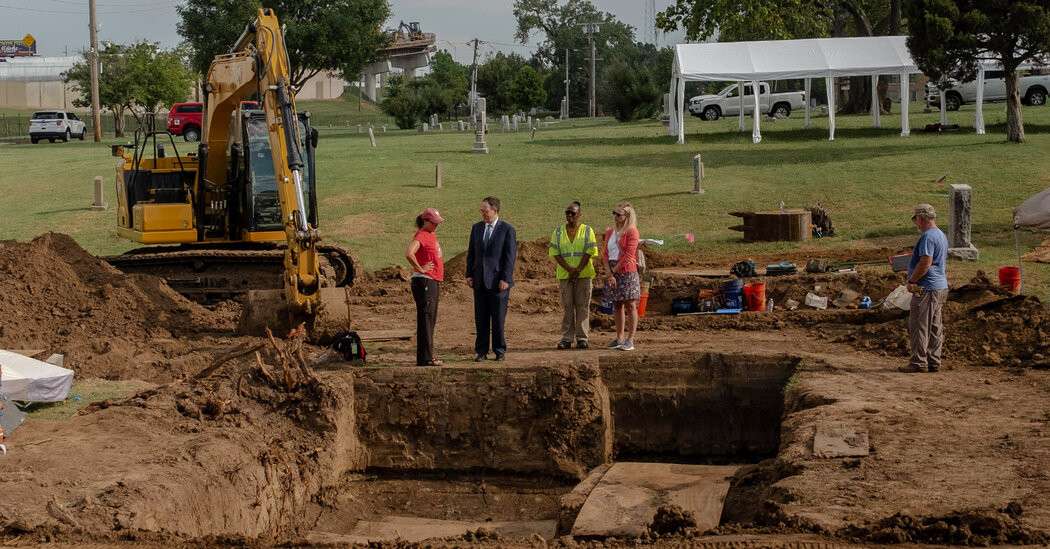

The plan, the first large-scale attempt to address the impact of the 1921 atrocity, will raise private funds for housing assistance, scholarships and economic development.
The Tulsa Race Massacre of 1921, one of the most horrific episodes of racial violence in U.S. history, killed up to 300 Black residents and destroyed a neighborhood. More than a century later, the city’s mayor announced a $105 million reparations package on Sunday, the first large-scale plan committing funds to address the impact of the atrocity.
Monroe Nichols, the first Black mayor of Tulsa, unveiled the sweeping project, named Road to Repair. It is intended to chip away at enduring disparities caused by the massacre and its aftermath in the Greenwood neighborhood and the wider North Tulsa area of Tulsa, Okla.
The centerpiece of the project is the creation of the Greenwood Trust, a private charitable trust, with the goal of securing $105 million in assets — including private contributions, property transfers and possible public funding — by next spring, the 105th anniversary of the attack.
The plan does not include direct cash payments to the two last known survivors of the massacre, who are 110 and 111 years old. But such payments could be considered by the trust’s Board of Trustees, according to Michelle Brooks, a city spokeswoman.
Mr. Nichols said a plan to restore Greenwood — a neighborhood that was so prosperous before the attack that it inspired the name Black Wall Street — was long overdue.
“One hundred and four years is far too long for us to not address the harm of the massacre,” Mr. Nichols said in an interview before the announcement. He added that the effort was really about “what has been taken from a people, and how do we restore that as best we can in 2025, proving we’re much different than we were in 1921.”